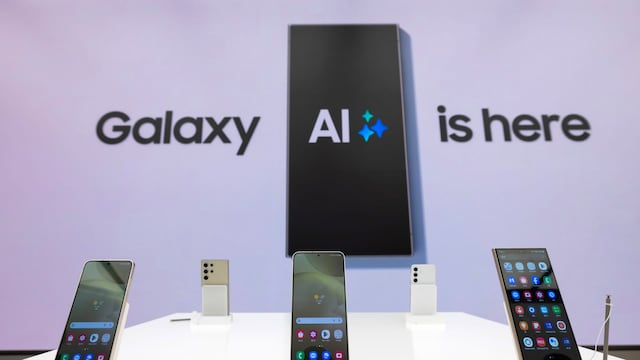Samsung’s Galaxy AI in S24 series in China is powered by Baidu instead of Google, and people are hating it
While for the rest of the world, Samsung has partnered with Google for its Galaxy AI, in China, the South Korean giant has partnered with Baidu, because of how the country regulates AI. Galaxy AI’s features in China are not even remotely comparable to that of its Google-powered counterpart
Samsung’s recent collaboration with Chinese search giant Baidu to integrate artificial intelligence (AI) technology into its latest flagship smartphones, the Galaxy S24 series, has generated tepid interest among consumers in mainland China.
The strategic partnership between Samsung’s China division and Baidu AI Cloud, announced in late January, entails deploying Baidu’s Ernie large language model (LLM) and search engine to enhance the AI search functions of the Galaxy S24 series released in China on January 25.
These AI features, tailored for the Chinese market, resemble those offered by Google’s Gemini AI in the global version of the Galaxy S24 series, which is unavailable in China. However, Chinese consumers have expressed concerns on social media that the local version’s search features may not match the quality of the international variant.
Related Articles

After Samsung, OnePlus adds AI features to its flagship phones in latest ColorOS update, but only in China

China’s big push for mass use of AI: Approves 14 LLMs for public release, over 40 in last 6 months
Weibo user “Sun Weilun” noted differences after testing various models in a Samsung store in Hong Kong, stating that the “Circle to Search” feature powered by Baidu provided fewer results compared to the overseas version supported by Google.
Some consumers, like Beijing resident Richard Zhang, are considering purchasing the international version of the Galaxy S24 for superior AI services, citing issues with the mainland system recognizing Samsung phones incorrectly.
Baidu, recognized as a leading AI player in China, initiated its own ChatGPT alternative with Ernie Bot in March 2023. Despite its standing, the Baidu-Samsung partnership is not anticipated to significantly impact Samsung’s position in the Chinese smartphone market, where its market share has plummeted from 20 per cent to less than 1 per cent over the past decade.
Samsung faces challenges from rising Chinese vendors such as Huawei Technologies, Oppo, and Vivo, which are developing their own large language models (LLMs) or integrating generative AI features into their latest handsets.
Ivan Lam, a senior analyst at Counterpoint Research, believes that within the Chinese market, AI alone is unlikely to bring immediate changes but sees the partnership with Baidu as a sign of Samsung’s commitment to long-term operations in China.
In terms of pricing, Samsung has set higher prices for the Galaxy S24 and S24+ in China compared to the previous S23 models, a strategy differing from its pricing approach in the US and Europe. Analysts, such as Peng Peng from TechInsights, observe that Samsung may not be aggressively competing with domestic vendors on value for money in the world’s largest smartphone market.

While for the rest of the world, Samsung has partnered with Google for its Galaxy AI, in China, the South Korean giant has partnered with Baidu, because of how the country regulates AI. Galaxy AI’s features in China are not even remotely comparable to that of its Google-powered counterpart
Samsung’s recent collaboration with Chinese search giant Baidu to integrate artificial intelligence (AI) technology into its latest flagship smartphones, the Galaxy S24 series, has generated tepid interest among consumers in mainland China.
The strategic partnership between Samsung’s China division and Baidu AI Cloud, announced in late January, entails deploying Baidu’s Ernie large language model (LLM) and search engine to enhance the AI search functions of the Galaxy S24 series released in China on January 25.
These AI features, tailored for the Chinese market, resemble those offered by Google’s Gemini AI in the global version of the Galaxy S24 series, which is unavailable in China. However, Chinese consumers have expressed concerns on social media that the local version’s search features may not match the quality of the international variant.
Related Articles

After Samsung, OnePlus adds AI features to its flagship phones in latest ColorOS update, but only in China

China’s big push for mass use of AI: Approves 14 LLMs for public release, over 40 in last 6 months
Weibo user “Sun Weilun” noted differences after testing various models in a Samsung store in Hong Kong, stating that the “Circle to Search” feature powered by Baidu provided fewer results compared to the overseas version supported by Google.
Some consumers, like Beijing resident Richard Zhang, are considering purchasing the international version of the Galaxy S24 for superior AI services, citing issues with the mainland system recognizing Samsung phones incorrectly.
Baidu, recognized as a leading AI player in China, initiated its own ChatGPT alternative with Ernie Bot in March 2023. Despite its standing, the Baidu-Samsung partnership is not anticipated to significantly impact Samsung’s position in the Chinese smartphone market, where its market share has plummeted from 20 per cent to less than 1 per cent over the past decade.
Samsung faces challenges from rising Chinese vendors such as Huawei Technologies, Oppo, and Vivo, which are developing their own large language models (LLMs) or integrating generative AI features into their latest handsets.
Ivan Lam, a senior analyst at Counterpoint Research, believes that within the Chinese market, AI alone is unlikely to bring immediate changes but sees the partnership with Baidu as a sign of Samsung’s commitment to long-term operations in China.
In terms of pricing, Samsung has set higher prices for the Galaxy S24 and S24+ in China compared to the previous S23 models, a strategy differing from its pricing approach in the US and Europe. Analysts, such as Peng Peng from TechInsights, observe that Samsung may not be aggressively competing with domestic vendors on value for money in the world’s largest smartphone market.
